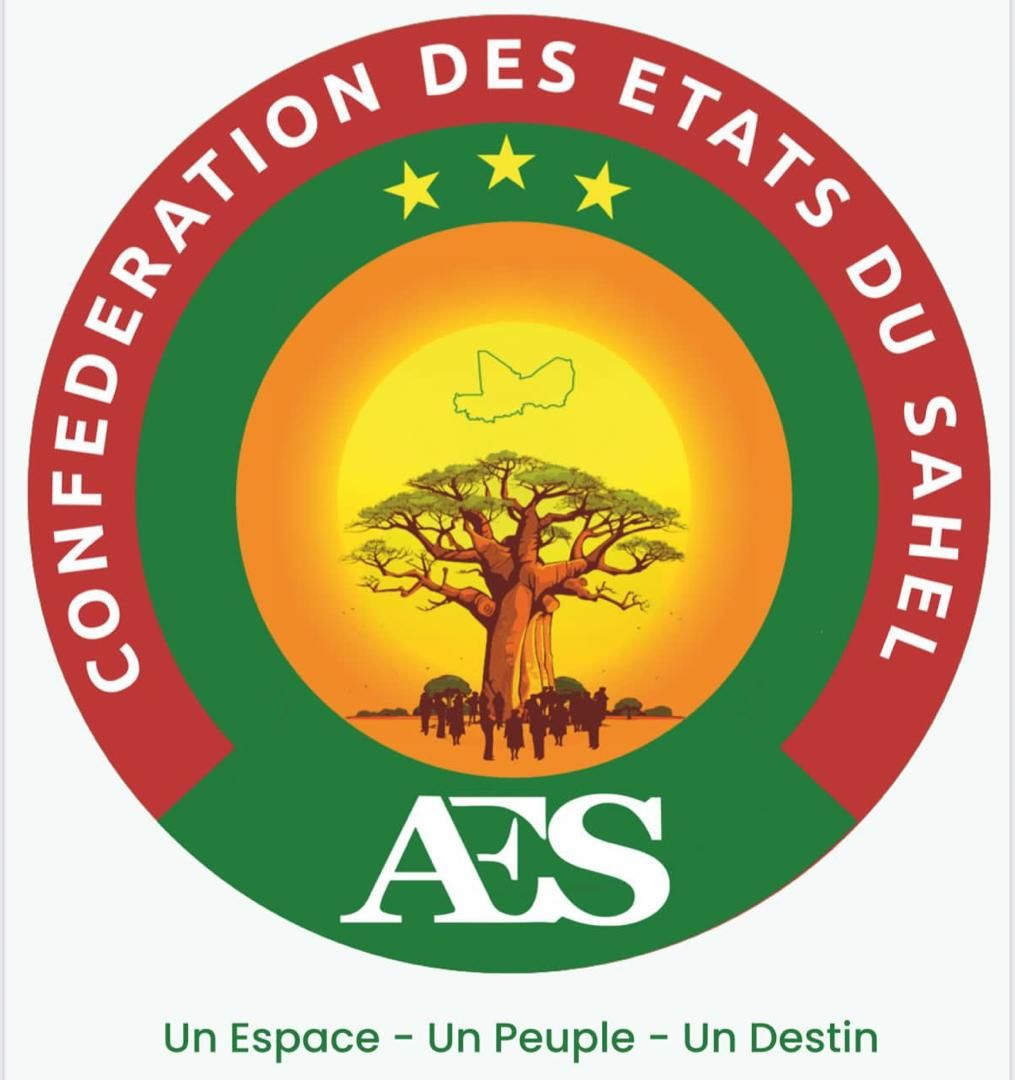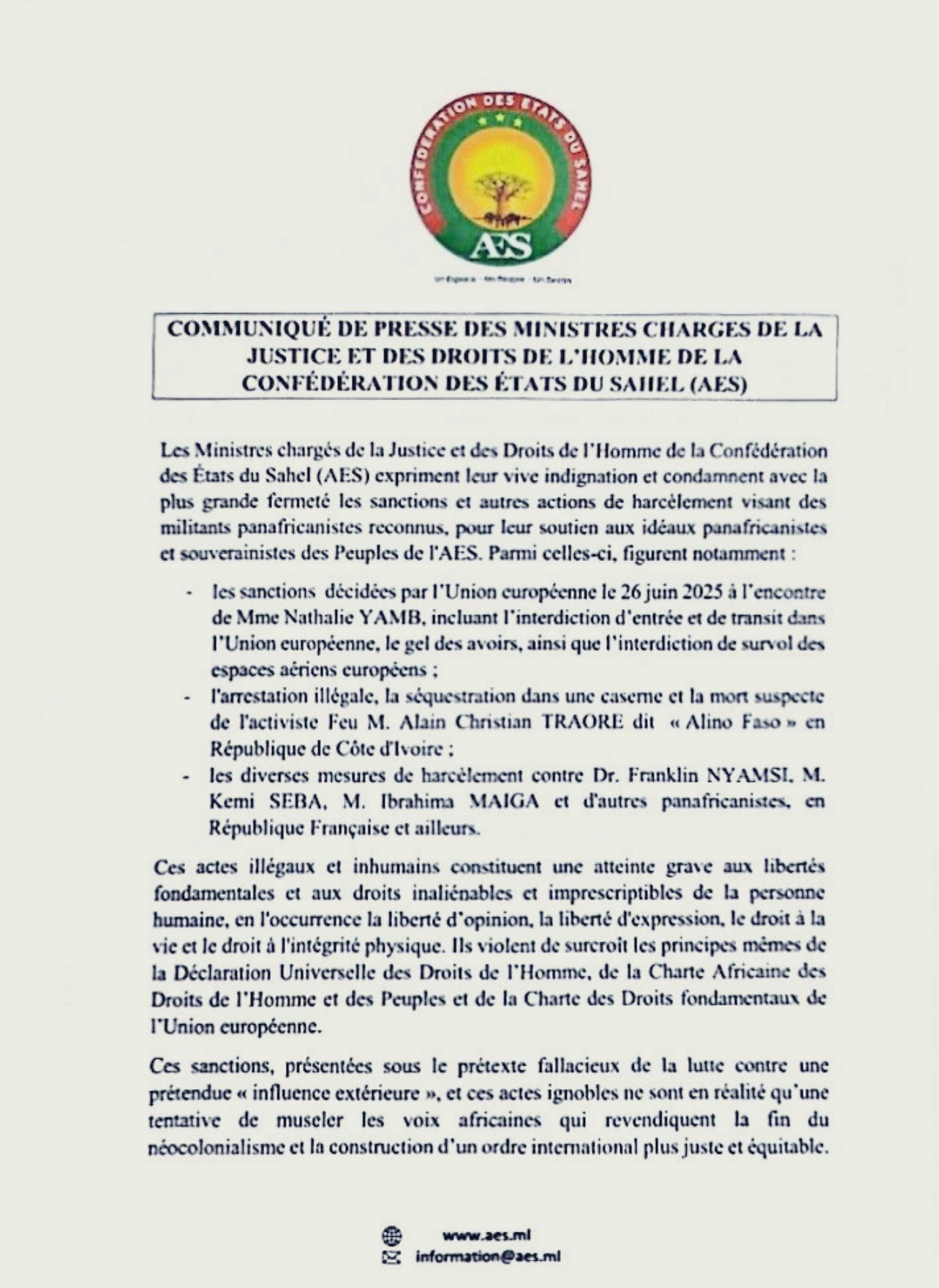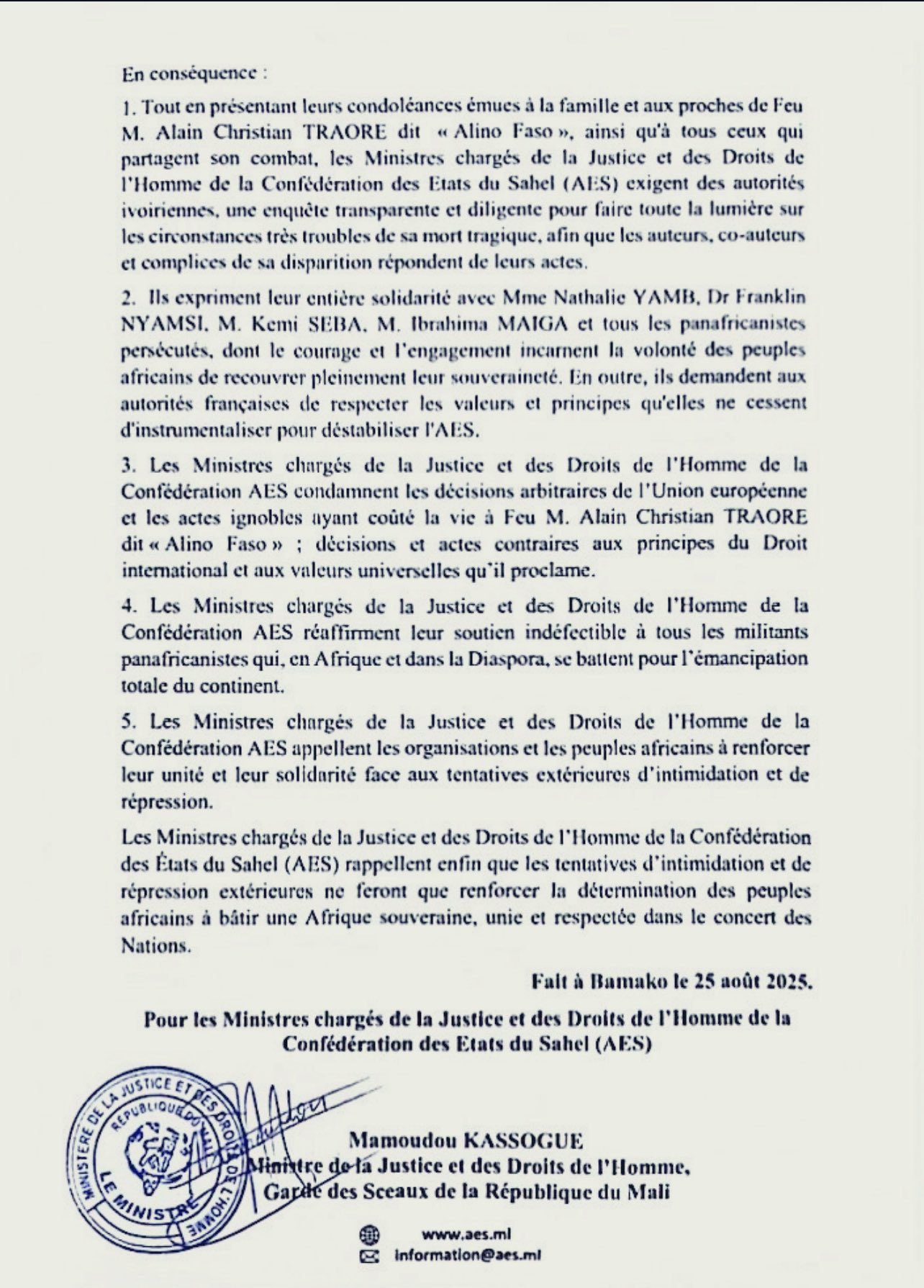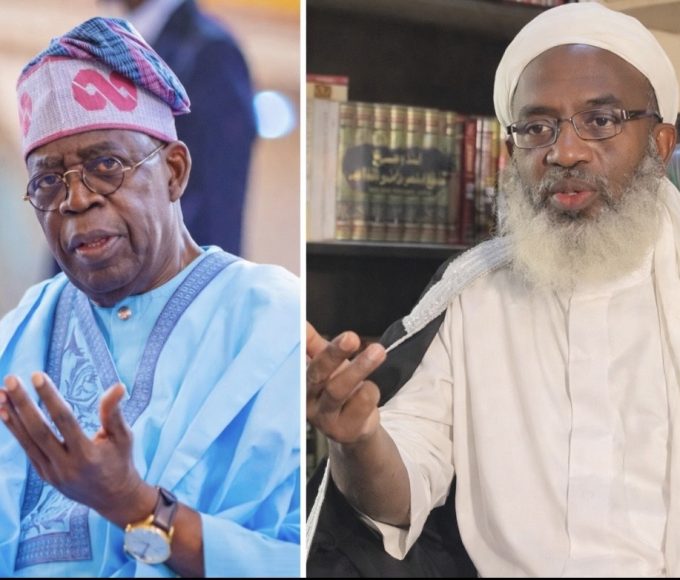
AES Takes Historic Stand With Pan-Africanists, Demands Transparent Investigation Of Alino Faso’s Death

The Confederation of Sahel States (CSS) has expressed their strong indignation and condemnation of the sanctions and other acts of harassment of Pan-Africanists as acts of repression targeting prominent voices of African sovereignty.
Meeting in Bamako, the Ministers of Justice and Human Rights of Mali, Burkina Faso, and Niger expressed “strong indignation” and condemned what they described as illegal, inhuman, and politically motivated actions against well-known pan-Africanist figures.
For the first time in history, sitting African governments are standing shoulder to shoulder with pan-African voices, marking a turning point in the relationship between African states and grassroots movements for emancipation.


Among the cases highlighted were: The European Union’s June 26, 2025, sanctions against Nathalie Yamb, which include a travel ban, freezing of assets, and prohibition from flying over European airspace. The arrest and suspicious death of Alain Christian Traoré, known as “Alino Faso”, in Côte d’Ivoire and various harassment measures against Dr. Franklin Nyamsi, Kemi Seba, Ibrahima Maïga, and others in France and beyond.
These acts violate fundamental freedoms and universal principles of human rights,” the ministers declared, citing the Universal Declaration of Human Rights, the African Charter on Human and Peoples’ Rights, and the EU’s Charter of Fundamental Rights.
The statement went further, accusing Western powers of using the pretext of “fighting external influence” as a tool to silence African voices calling for the end of neocolonialism and for a fairer international order.
The CSS ministers demanded a transparent investigation into the death of Alino Faso and accountability for all perpetrators. They also expressed “full solidarity” with Nathalie Yamb, Franklin Nyamsi, Kemi Seba, Ibrahima Maïga, and “all persecuted pan-Africanists whose courage and commitment embody the will of African peoples to fully regain their sovereignty.”
They further called on France and the European Union to live up to the democratic and human rights values they claim to uphold, instead of weaponising them against African sovereignty movements.
This official alignment between states and pan-Africanist militants is historic. Until now, many African governments kept their distance from outspoken anti-neocolonial activists, often under pressure from former colonial powers. Now, the AES governments are openly embracing pan-Africanist ideals, presenting themselves as political and institutional allies of grassroots activism.
Read Also: US Government Proposes DRC-Style Minerals-For-Security Deal To AES
About The Author
Related Articles
Tinubu Follows Gumi’s Lead as Nigeria Signs Turkey Defence Deal, Fueling Speculation Over Who Really Controls the Country’s Security Policy
Nigeria’s diplomatic and security strategy is once again under scrutiny after a...
ByWest Africa WeeklyJanuary 28, 2026Burkina Faso President Ibrahim Traoré Reviews 2025 Achievements, Sets Ambitious Agenda for 2026
Burkina Faso’s President, Ibrahim Traoré, has described 2025 as a year of...
ByWest Africa WeeklyJanuary 28, 2026Mali Says Reports of New Three-State Sahel Currency Are False but Talks Continue on Economic Integration
Mali’s government has rejected claims that it and its neighbours, Burkina Faso...
ByWest Africa WeeklyJanuary 28, 2026CBN Upgrades Opay, Moniepoint, Kuda and Others to National Licences
The Central Bank of Nigeria has upgraded the operating licences of several...
ByWest Africa WeeklyJanuary 28, 2026












Leave a comment